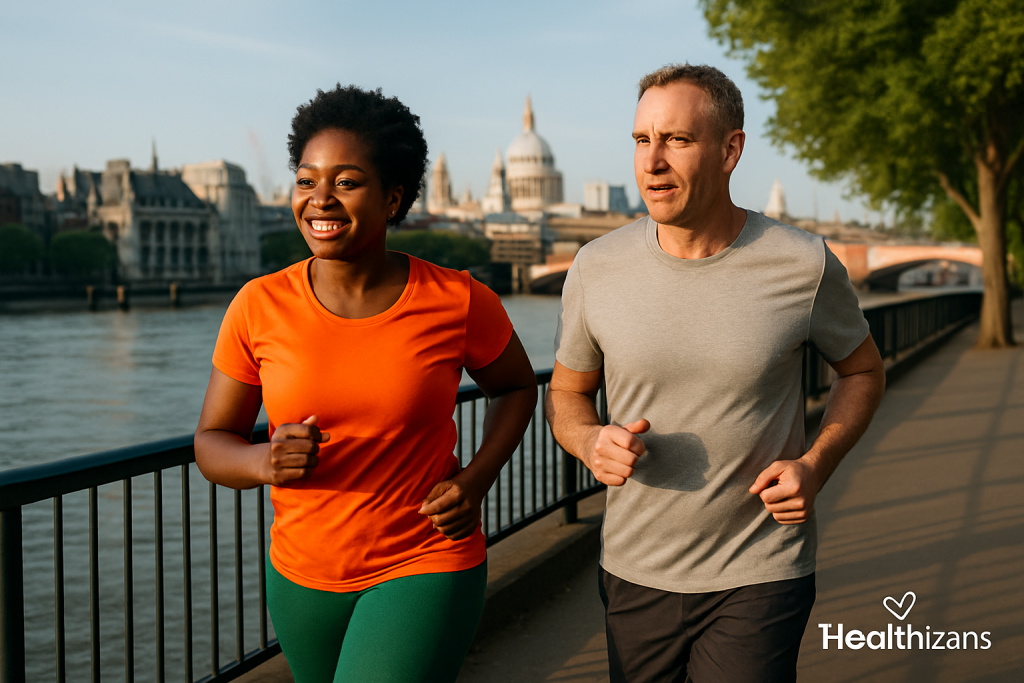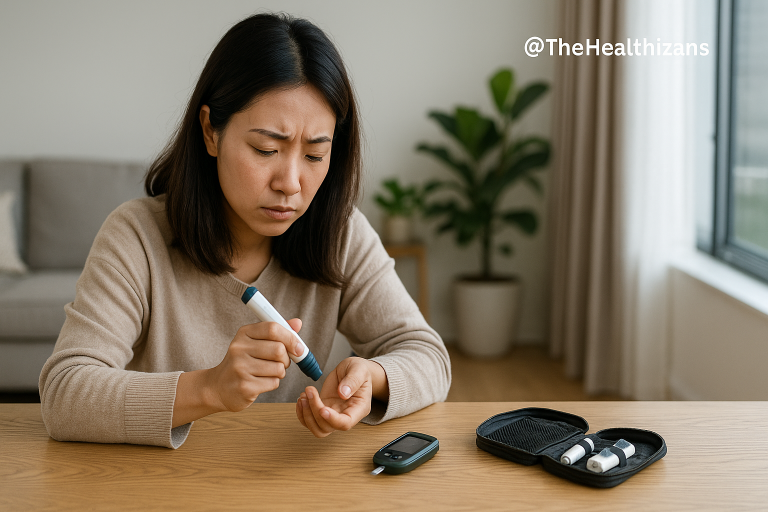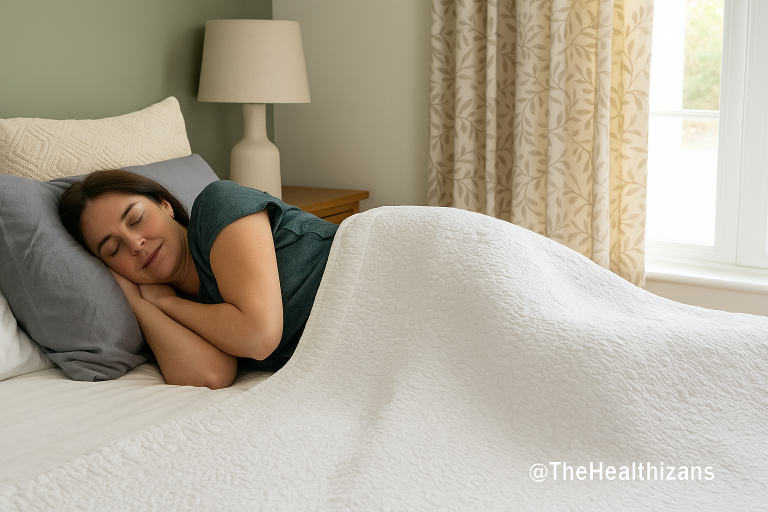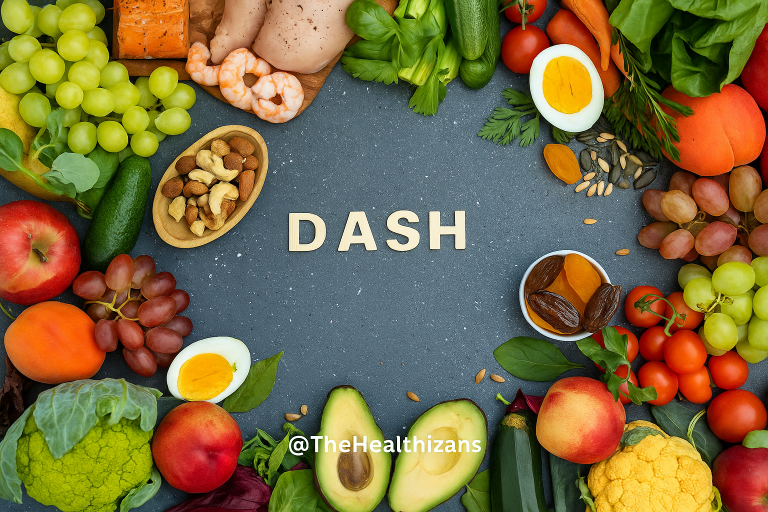💬 Let’s Talk Everyday Habits

You don’t always need a prescription to start managing your blood pressure — sometimes, the best medicine is hidden in your everyday routine. While medications like ACE inhibitors or calcium channel blockers are essential for some, many people can improve their blood pressure naturally just by adjusting their lifestyle.
Ready to take control? Here are 10 science-backed habits that can help lower your blood pressure and support a healthier heart.
🧂 1. Cut Back on Salt
Too much salt (sodium) causes your body to retain water, which puts extra pressure on your blood vessels.
🔹 The World Health Organization (WHO) recommends keeping daily salt intake below 5 grams — that’s less than a teaspoon.
🔹 In many countries, from Nigeria to India, processed foods and seasoning cubes are a hidden source of excess sodium.
✅ Tip: Use herbs, garlic, ginger, or lemon juice to season your meals instead.
🚶♀️ 2. Move More
Physical activity helps the heart become stronger and more efficient. Even a brisk 30-minute walk most days can do wonders.
🔹 According to the American Heart Association, regular exercise can lower systolic blood pressure by up to 5–8 mmHg.
🔹 In rural Kenya, studies show that communities with higher daily walking activity have lower rates of hypertension.
✅ Try dancing, gardening, skipping, or joining a community walk group.
😴 3. Prioritise Sleep
Poor sleep raises stress hormones like cortisol, which can elevate blood pressure.
🔹 Adults need 7–9 hours of quality sleep each night.
🔹 Sleep apnea and insomnia are common in people with high blood pressure — don’t ignore snoring or constant fatigue.
✅ Try switching off screens an hour before bed and sticking to a regular sleep schedule.
🧘♂️ 4. Manage Stress
Stress triggers the body’s “fight or flight” response, tightening blood vessels and raising your pulse.
🔹 Chronic stress — whether from work, finances, or family pressures — can keep blood pressure elevated long-term.
✅ Practice deep breathing, mindfulness, prayer, journaling, or spend time in nature.
🍌 5. Eat More Potassium
Potassium balances out sodium in your system and helps your blood vessels relax.
🔹 Foods rich in potassium include bananas, sweet potatoes, spinach, beans, and avocados.
🔹 The NHS recommends a potassium intake of about 3,500–4,700 mg per day, depending on age and sex.
✅ Whole foods over supplements — unless your doctor advises otherwise.
🍷 6. Reduce Alcohol Intake
Too much alcohol raises blood pressure and weakens the heart.
🔹 In the UK, guidelines suggest no more than 14 units per week, spread over several days.
🔹 Binge drinking is especially harmful — even occasional excess can spike your readings.
✅ Try alcohol-free days or switch to lower-alcohol alternatives.
☕ 7. Limit Caffeine (If Sensitive)
Caffeine can cause a temporary rise in blood pressure, especially in those not used to it.
🔹 The effect varies from person to person. Some tolerate coffee well; others experience palpitations.
✅ Try switching to herbal teas, especially in the evening.
🚭 8. Quit Smoking
Smoking stiffens arteries and accelerates the build-up of plaque.
🔹 Even secondhand smoke increases cardiovascular risk.
🔹 The good news? Within 24 hours of quitting, blood pressure and heart rate begin to drop.
✅ Most health systems, including the NHS Stop Smoking Services, offer free support tools and nicotine replacement options.
🩺 9. Monitor Your Blood Pressure at Home
Keeping an eye on your numbers helps you track progress and spot problems early.
🔹 Home monitoring devices are widely available and easy to use.
🔹 Check your blood pressure at the same time each day and keep a record.
✅ Ideal BP is below 120/80 mmHg — talk to your doctor if it’s consistently higher.
😂 10. Laugh Often
Laughter reduces stress hormones, increases nitric oxide (which helps blood vessels relax), and improves circulation.
🔹 A 2023 Japanese study found that laughter therapy reduced systolic blood pressure in older adults.
✅ Watch a comedy, chat with friends, or recall happy memories. It’s medicine with no side effects.
🌍 Final Thought
Managing blood pressure isn’t about drastic changes — it’s about small, sustainable habits you can build into your daily life. Whether you’re in Lagos, London, or Lahore, these changes are doable and effective.
Start with just one or two habits this week, and build from there. Your heart will thank you.
📚 References
- World Health Organization (2023). Salt reduction strategies globally
- American Heart Association. How Physical Activity Helps Control Blood Pressure
- British Heart Foundation. Understanding Blood Pressure
- Heart Foundation Australia. Food & Nutrition Tips for Lowering Blood Pressure
- NHS UK. Stop Smoking and Blood Pressure Resources
- Japanese Society of Hypertension (2023). Effects of Laughter on Cardiovascular Function



